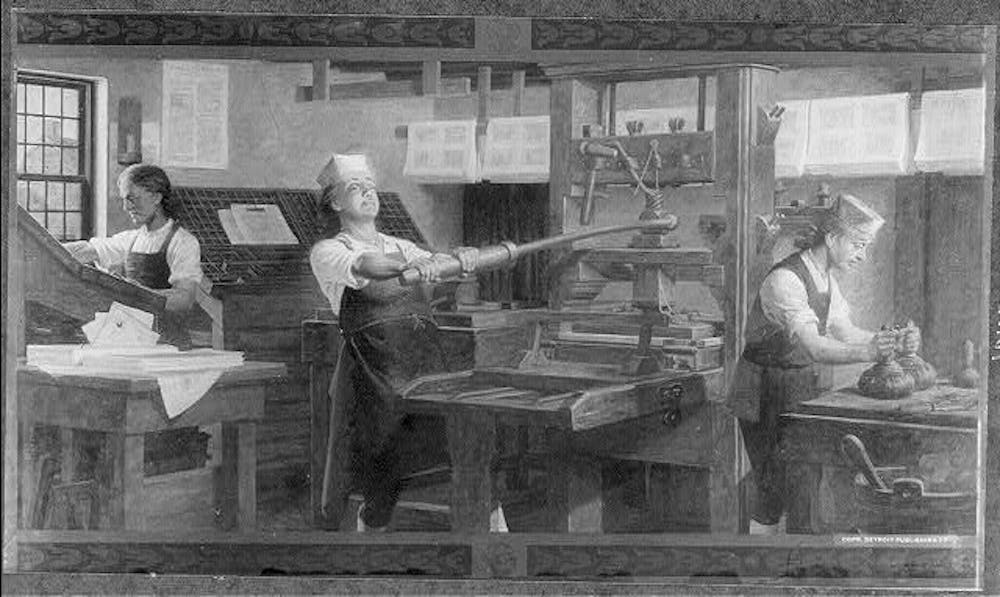Carpenter: The power of the press and free speech forged our democracy
America’s history is rich in both the violation and vitalization of our First Amendment.
From the movements that shaped the 13th, 14th and 15th amendments to the use of strategic lawsuits against public participation (SLAPP) and other silencing tactics, our free speech has been a pendulum that swings in nearly every chapter of our history.
Before our founding fathers gathered on July 4, 1776, in Philadelphia to declare their independence from the British Monarch, they utilized the power of the pen and protest to create the democratic republic we live in today.
Before the revolution, the American colonies were barred from publishing or making statements that criticized the government under strict seditious libel laws. New York printer and journalist John Zenger was charged with libel in 1735 after publishing articles in the New York Journal about appointed New York’s Governor William Cosby. He was acquitted after the jury found his statements were rooted in the truth, according to Britannica.
Before “The shot heard around the world” was fired, colonists who protested the British Government utilized pamphlets to rally support and voice their frustrations with the state of the colonies, according to the University of Utah. Famous authors of the revolution include Thomas Paine, Benjamin Franklin, as well as the publishers of the Boston Gazette, Benjamin Edes and John Gill.
However, even after the Bill of Rights was formally established in December of 1791, the freedom of speech and the press were challenged. The 5th U.S. Congress passed the Alien and Sedition Acts in 1798, which limited criticism of the government according to the U.S. National Archives.
The Free Speech Center stated that several journalists were charged under this act, including Benjamin Franklin Bache, the printer and publisher of the Philadelphia Aurora, and the grandson of Benjamin Franklin.
These acts expired after our third president, Thomas Jefferson, took office, but similar legislation has been seen throughout Congress's history, according to the center. In 1918, in the midst of World War I, the 65th Congress passed another sedition act.
Nearly a decade later, these acts were challenged and eventually reversed by the Supreme Court, according to the National Constitution Center.
The power of free speech and the press is complex because words hold value. Words can create unity or create division, and history has proven that for generations.
The cycle of limiting free speech has been woven into the creation and preservation of our rights, and it will continue as we maintain our government. Our country is not perfect, far from it, but we have a better chance of seeing the best way forward when we reflect on the flaws and victories of our nation’s divisive history.
As stated in our Constitution, “We the People” oversee our freedom. It is our job to recognize when our rights are being infringed upon and to act to ensure they don’t remain violated.
Blace Carpenter is Central Michigan Life's managing editor. He is a junior majoring in Journalism at Central Michigan University.







